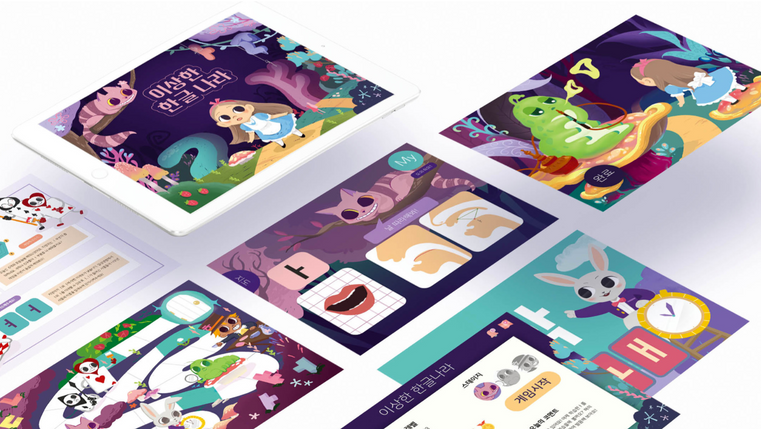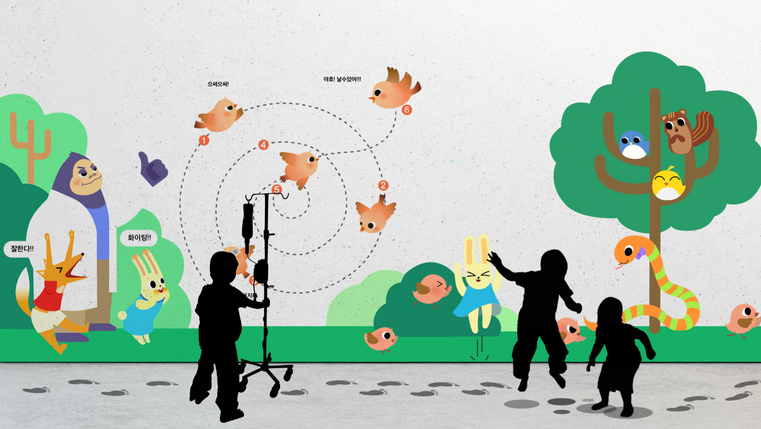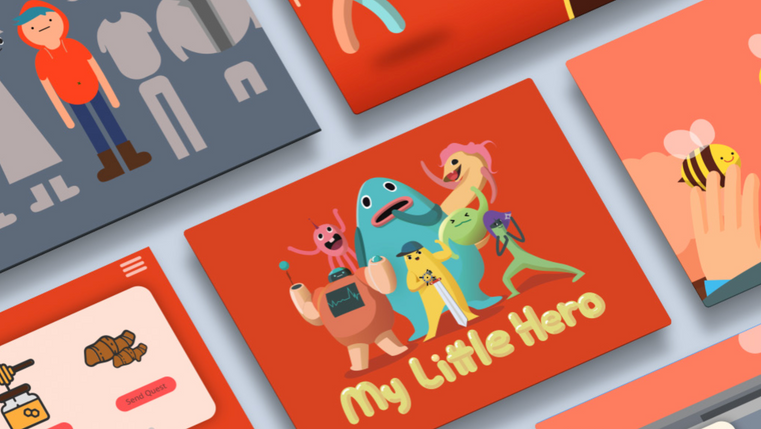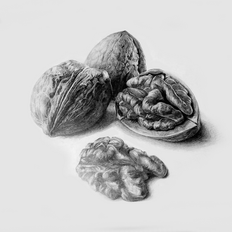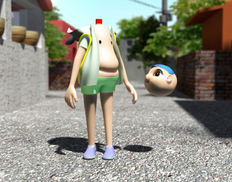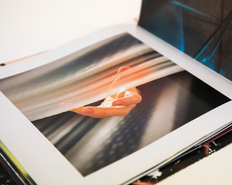Hello!
Welcome to my website. My name is Daye Kang :)
My research interests lie at the intersection of Human-Computer Interaction (HCI), human-AI interaction, and design.
I have extensive experience in UX research, including understanding user needs and designing systems that support data work by incorporating visualization and human-AI interaction. Currently, I am focusing on supporting holistic health management using multimodal AI in the context of personal informatics.
I started my academic career in Visual Communication Design, focusing on UX research and animation at Hongik University. I received my MS in Industrial Design, focusing on HCI, from KAIST, advised by Dr.Andrea Bianchi. Currently, I am a Ph.D. candidate at Cornell University's Information Science Department, working with my advisor, Dr.Malte Jung, and many wonderful colleagues. My dissertation committee members are Dr.Jeff Rzeszotarski, Dr.David Mimno, Dr.Qian Yang, and Dr. Noémie Elhadad.
You can pronounce my name as Da-Ye [da ye].


News
-
[Oct'25] 🏅 "ThemeViz: Understanding the Effect of Human-AI Collaboration in Theme Development with an LLM-enhanced Interactive Visual System" received an Honorable Mention Award at CSCW'25.
-
[June'25] I will attend DIS2025 workshops. See you at DIS!
-
Design Knowledge in AI: Navigating Temporality and Continuity (Saturday 5 July 2025)
-
Examining the Effects of Human-AI Collaboration in Creative Visual Imagery
-
-
Bring Your Own Biodata (BYOB): Feminist, Corporeal and Collective Approaches to Datafied Bodies (Sunday 6 July 2025)
-
Exploring New Sensemaking Methods to Understand Complex Lived Experiences with PCOS Data
-
-
-
[June'25] "ThemeViz: Understanding the Effect of Human-AI Collaboration in Theme Development with an LLM-enhanced Interactive Visual System" got accepted to CSCW 2025!
-
[Mar'25] 🏆 'Towards Hormone Health: An Autoethnography of Long-Term Holistic Tracking to Manage PCOS' received a Best Paper Award at CHI'25
-
[Jan'25] 'Towards Hormone Health: An Autoethnography of Long-Term Holistic Tracking to Manage PCOS' has been conditionally accepted to CHI 2025. I thank all of my wonderful collaborators!
-
[Nov'24] Attending CSCW 2024 in Costa Rica to present my work 'Challenges and Opportunities for Tool Adoption in Industrial UX Research Collaborations.'
-
[Nov'24] I passed my Candidacy exam!
-
[May'24] Sharing 'LLM-embedded interactive visual system for iterative theme refinement' at CHI2024 workshop. LLMs as Research Tools: Applications and Evaluations in HCI Data Work
-
[March'24] The 'Challenges and Opportunities for Tool Adoption in Industrial UX Research Collaborations' paper was accepted to CSCW'24

RESEARCH
Publications


CSCW 2026 🏅Honorable Mention Award
ThemeViz: Understanding the Effect of Human-AI Collaboration in Theme Development with an LLM-enhanced Interactive Visual System
Daye Kang, Zhuolun Han, Jiahe Tian, Muhan Zhang, and Jeff Rzeszotarski
This paper explores the potential role of AI, e.g., large language models (LLMs), in supporting theme development in thematic analysis. While prior applications of AI in qualitative data analysis have focused on supporting coding, we investigate whether LLMs can effectively contribute as collaborators in the more abstract and conceptual phases of qualitative analysis, specifically theme development. Despite growing interest in AI as a collaborator in theme development, there is limited empirical evidence on designing AI-assisted tools while supporting user autonomy and understanding researcher interaction with AI-assisted theme development. To address this gap, we designed ThemeViz, an interactive system that uses GPT-4 to generate and visualize multiple versions of themes based on user input while allowing researchers to maintain control through manual coding and theme development. Our study examines the effectiveness of this human-AI collaboration approach in iterative theme development and its implications for future designs.

CHI 2025 🏆 Best Paper Award
Towards Hormone Health:
An Autoethnography of Long-Term Holistic Tracking to Manage PCOS
Daye Kang, Jingjin Li, Gilly Leshed, Jeff Rzeszotarski and Xi Lu
Polycystic ovary syndrome (PCOS) is a common hormonal disorder affecting 11-13% of women of reproductive age, characterized by a wide range of symptoms (e.g., menstrual irregularity, acne, and obesity) that varies among individuals. While self-tracking tools help PCOS patients to monitor their symptoms and find personalized treatment, they often focus on regular periods of healthy women with inadequate support for the 1) personalization and 2) long-term holistic tracking necessary for managing complex chronic conditions like PCOS. To bridge this gap, the first author (who has PCOS) conducted an autoethnographic study of holistic self-tracking over a period of ten months in an effort to manage her condition. Our results highlight the challenges of personalized, holistic, long-term tracking in medical, socio-cultural, temporal, technical, and spatial contexts. Based on these insights, we provide design implications for tracking tools that are more inclusive and sustainable.

CSCW 24
Challenges and Opportunities for Tool Adoption in Industrial UX Research Collaborations
Daye Kang, and Jeff Rzeszotarski
Qualitative UX research practitioners analyze data to comprehend users' needs and synthesize implications for future design. Working with multiple stakeholders is inevitable in modern product development, and in industry, coordination and collaboration add pressures to already laborious qualitative data analysis tasks. In our work, we investigate how multi-stakeholder collaboration specifically affects industry qualitative data analysis practices. We investigate the challenges practitioners face, limitations of current tools, and opportunities for computer-supported cooperative work.

CHI 2021
ToonNote: Improving Communication in
Computational Notebooks Using
Interactive Data Comics
Daye Kang, Tony Ho, Nicolai Marquardt, Bilge Mutlu, Andrea Bianchi
ToonNote is a novel technique for representing computational notebooks in the form of interactive data comics. ToonNote provides a high-level, curated narrative of the dataset in Comic View. Readers can focus on data storytelling, and not be hindered by code, unnecessary outputs, or markdown and can switch back to the Notebook View when needed.

IMWUI 2019
HeyTeddy: Conversational Test-Driven Development for Physical Computing
Yoonji Kim, Youngkyung Choi, Daye Kang, Minkyeong Lee, Tek-Jin Nam, Andrea Bianchi
Physical computing is a complex activity that consists of different but tightly coupled tasks: programming and assembling hardware for circuits. We propose a general-purpose prototyping tool based on conversation. HeyTeddy guides users during hardware assembly by providing additional information on requests or by interactively presenting the assembly steps to build a circuit.

DIS 2019
Designing Internal Structure of Chocolate and Its Effect on Food Texture
Yujin Lee, Jee Bin Yim, Daye Kang, Hyeon-Beom Yi, Daniel Saakes
In this research, we explored the effects of the internal structure on the texture of chocolate by designing, building, and testing chocolates with different internal structures and internal chocolate percentage. Multiple layers of patterned chocolate were stacked as a fabrication method. Each layer was fabricated using a silicone mold that was made using a 3D printed model. We created seven types of chocolate variations through this system.

KSDS 2017 (Korean Society of Design Science)
Lexia in Wonderland: Korean Education Service for Children with Dyslexia
Daye Kang, Hye-Ryeong Kim, Ji-Hae Lee, Jae Young Yun.
Treating dyslexia during childhood is very important. In Korea, this is not the case since the condition is not well understood. Also, there is a limited number of medical centers that offer treatment for it. We propose an education app for dyslexic children ages 5-10 in Korea that can help these children through active learning. By teaching the children Korean phonics using 'nonwords' in a fun and engaging way, they can be treated at home instead of visiting the medical centers.

KSDS 2017 (Korean Society of Design Science)
Nudge Design to Increase Physical Activities for Hospitalized Children
Daye Kang, Hye-Min Choi, Ka-Hyun Kim, Younjoon Lee.
Hospitalized children are often asked to regularly walk in the hallway to stay active. However, the hallway is usually dull and empty. We created wallpapers and floor footprint stickers that use nudge design to be fun and engaging. Footprint stickers promote walking and leg stretches while the wallpaper contains stories that can add fun moments. Children are guided through stretching activities indicated on the wall.

PROJECTS
Data Science



PROJECTS
User Experience

PROJECTS
Artwork



